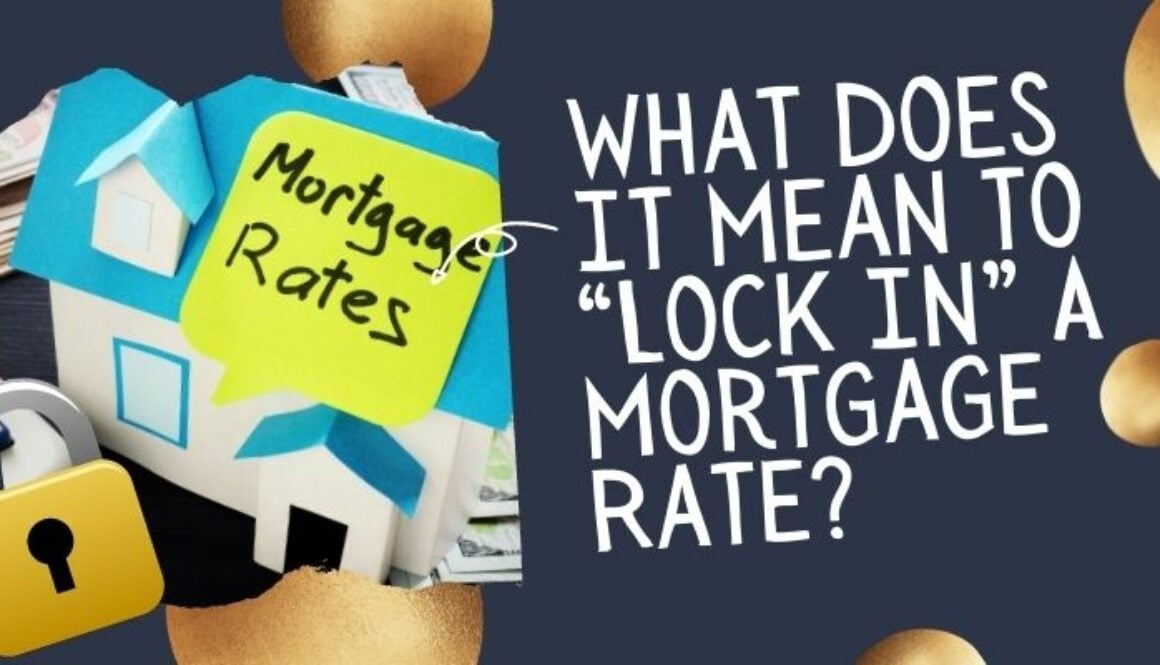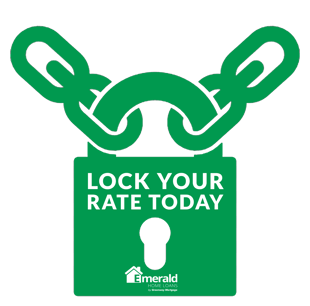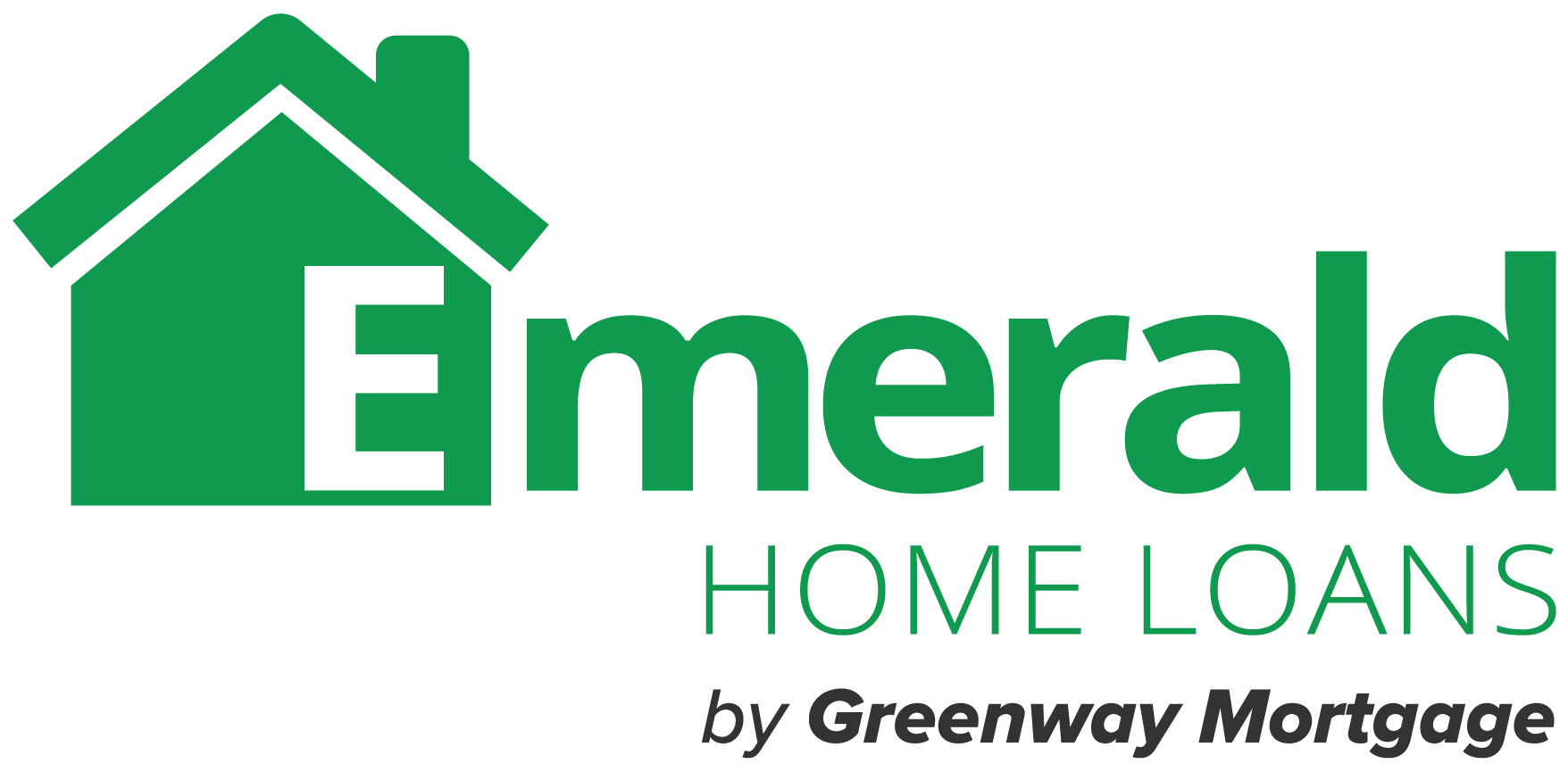
You may have heard the term rate lock before. Rate locks can save you thousands of dollars over the time you hold the mortgage loan, but what exactly are they and how do they work?
Mortgage interest rates are constantly moving up and down throughout the day and daily. During the underwriting and process stages of a mortgage, rates can fluctuate. Getting a mortgage rate lock is a way to keep your interest rate from moving higher before closing day.
What is a mortgage rate lock?
A rate lock, also known as rate protection, keeps your interest rate from rising between the time you apply for a mortgage and the time you close on your new loan.
A mortgage lender will set aside the necessary funds and “lock” loan terms and interest rates. In essence, think of a lock as your “RSVP”; the mortgage lender sets aside necessary funds for your transaction, and they will assume the risk of rates rising during the lock period.
Locking a rate allows clients to get the best mortgage rate possible while going through the refinancing or purchasing process. For example, if Emerald Home Loans locks in your rate at 3.5 percent for 45 days and rates jump to 4.5 percent within that period, you’ll get your loan at a lesser rate.
How long does the rate lock last?
The moment a loan is locked, the clock starts ticking! Lock periods typically last from 30 to 60 days, though in markets where the loan approval process is slow, the lock period can last as long as 90 days. The shorter the period that the lender locks a rate, the more beneficial to you in terms of the overall cost.
How does the length of a rate lock affect your cost?

In mortgage lending, almost every cost factor comes down to one variable—risk. You will generally find that the more risk a client is willing to assume, the better rates and terms a lender is willing to offer. Conversely, when a lender assumes more risk, they tend to counter that risk with higher costs. In this case, the longer a lender guarantees an interest rate, the larger a buffer they will require to offset that risk.
How much does a rate lock cost?
It depends as every mortgage lender is different. It also comes down to the amount and term of the loan. Some lenders do charge for a rate lock, though others offer one for free. But not everything is free. The fee may be included in the rate you were offered. Speak with an EHL Loan Officer for more information.
Is a mortgage rate lock worth it?
The benefits of a rate lock outweigh the risk. If you want to protect your homebuying power, it may be worth it. The rate lock is about preventing your mortgage payment from going up due to possible rate hikes before closing. Not locking a rate can mean having to come up with a higher down payment if rates did go up. Given where mortgage rates are at today and the possibility of them going higher, getting a rate lock can pay off!
What happens if you commit to locking a loan and you do not close in that period?
Sometimes, conditions arise that delay the process, and loan locks "expire" before a lender can close the transaction. In this case, the lender will typically grant an extension on the lock period but at an additional cost. An expiring loan lock does not typically jeopardize the overall likelihood of the loan's closing.
Bottom Line
If you have a good mortgage rate, lock it. Mortgage rate locks may protect you from rising rates and give you peace of mind. Speak with Emerald Home Loans for more information. The security of protecting yourself from rate spikes is worth it.





